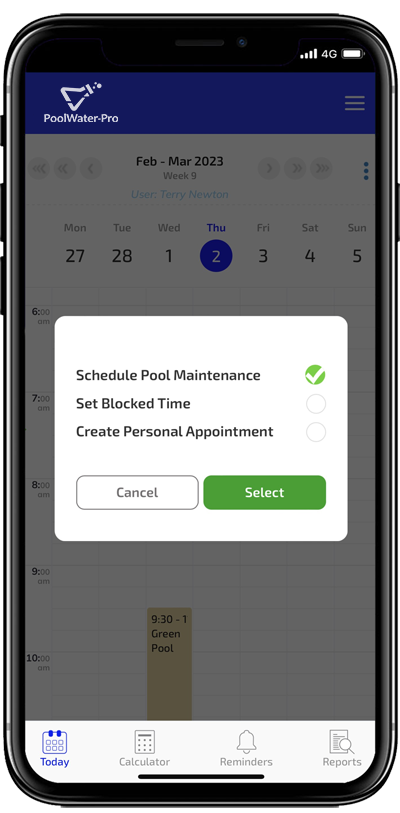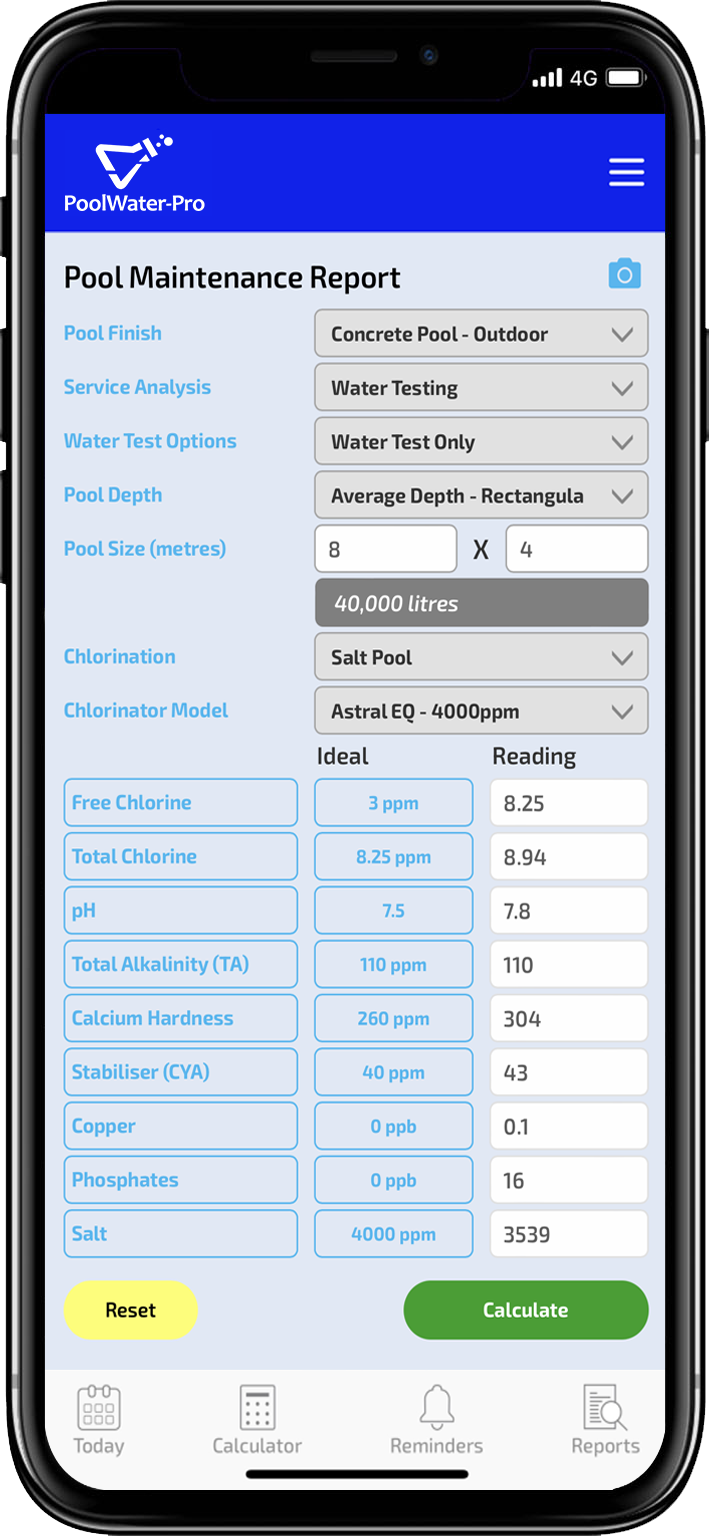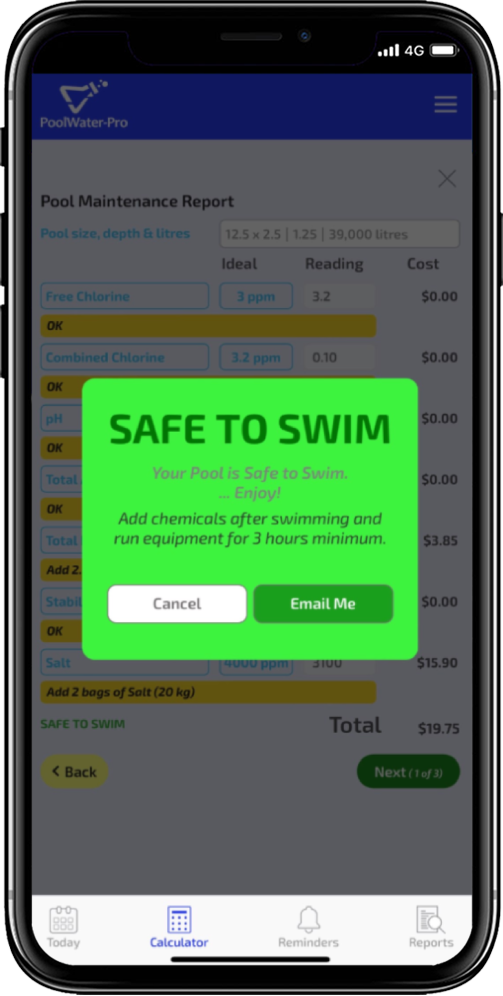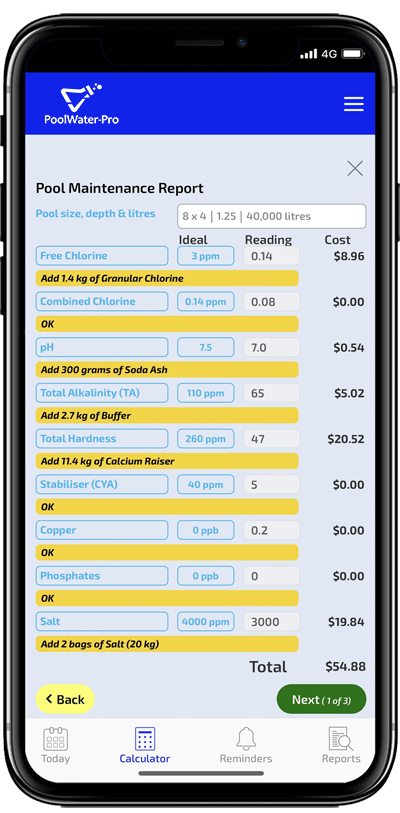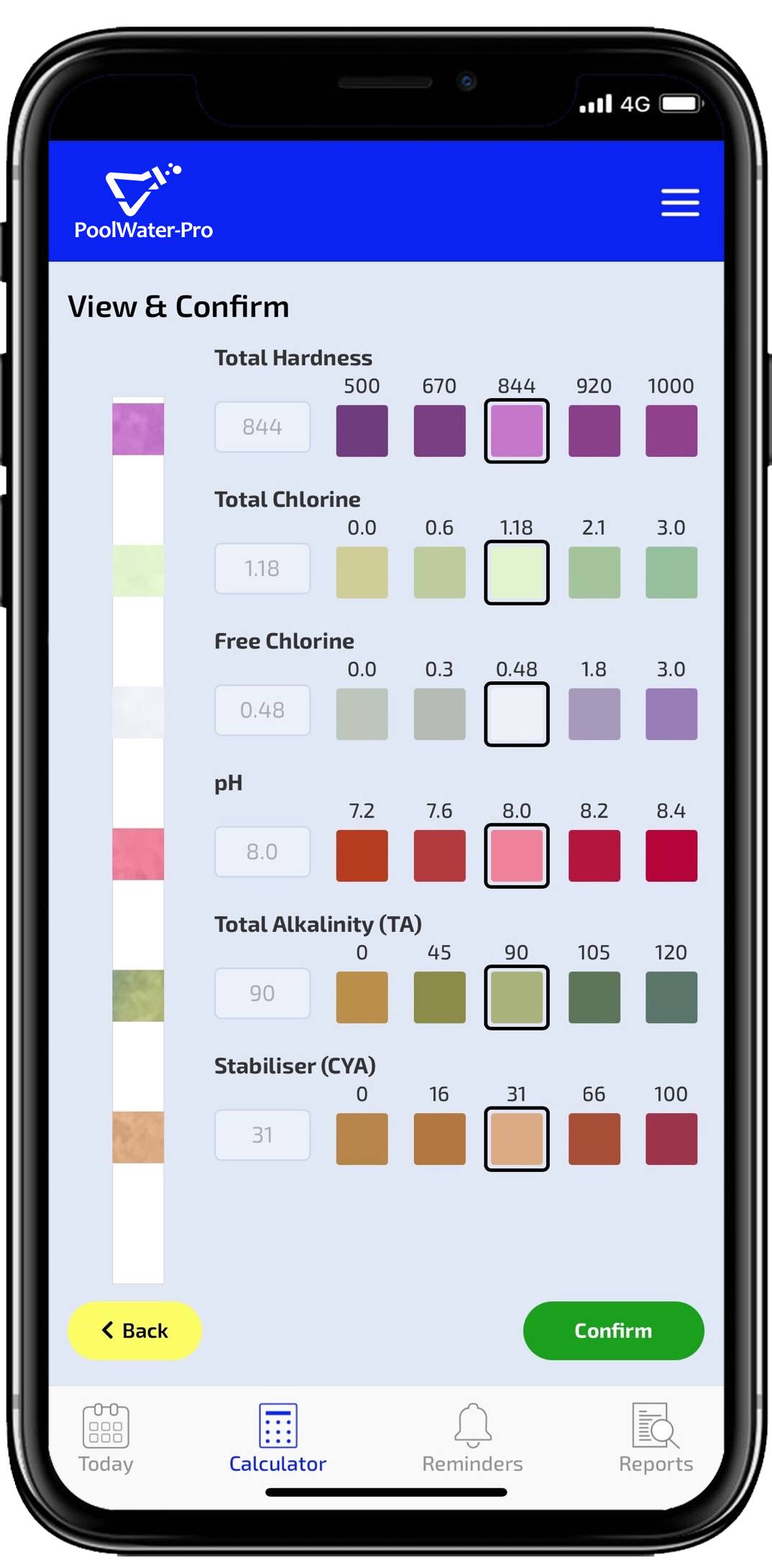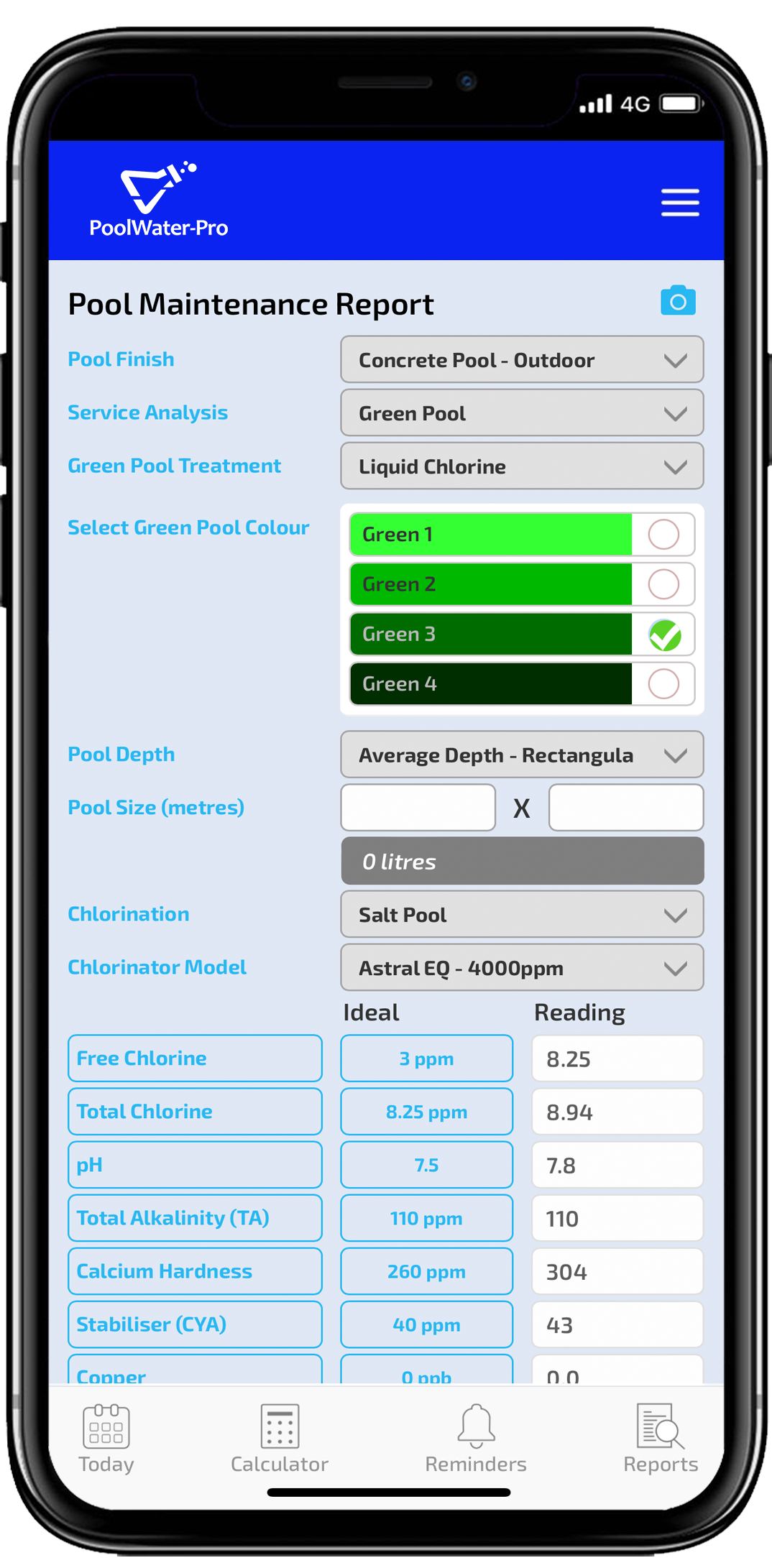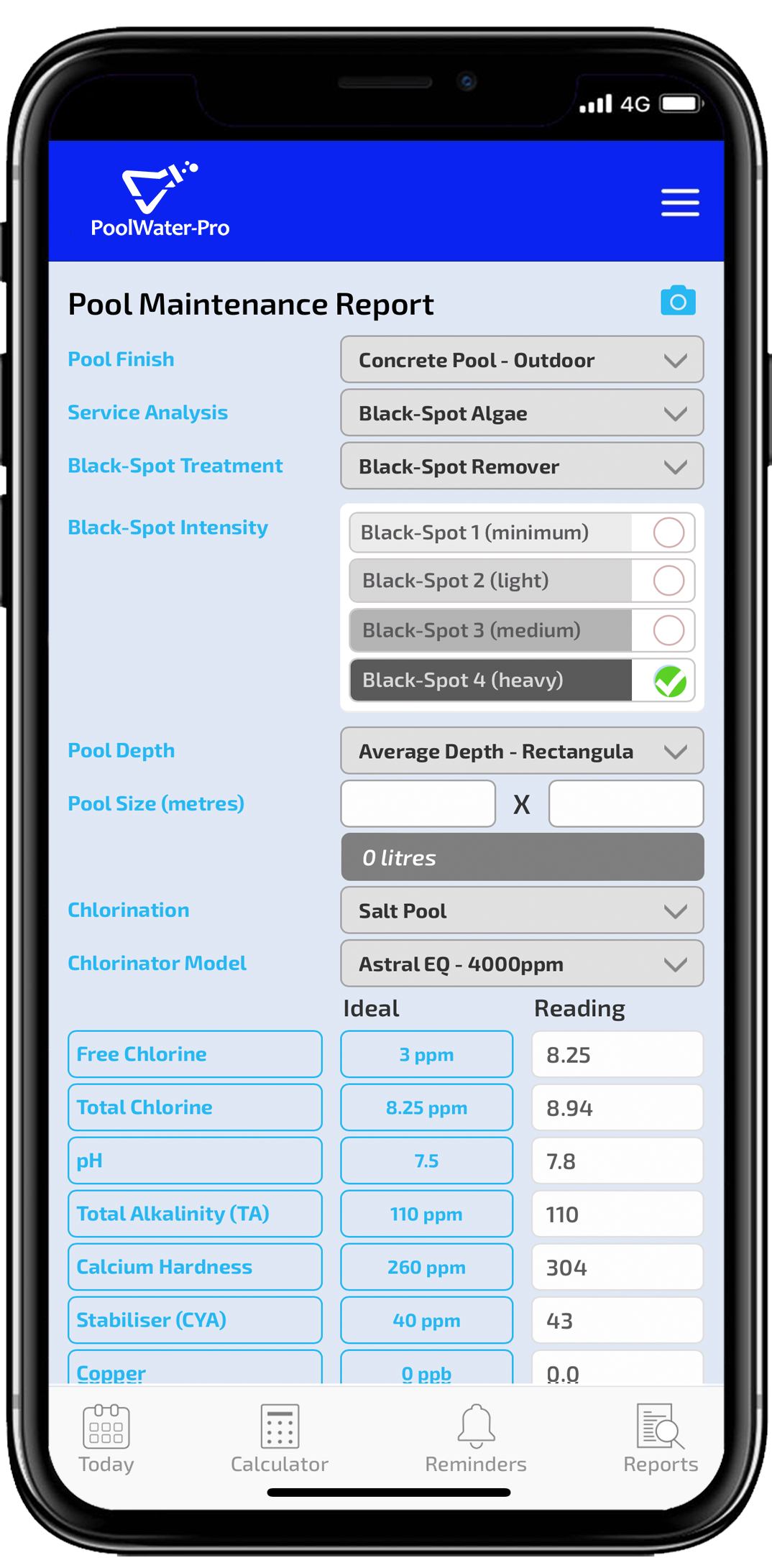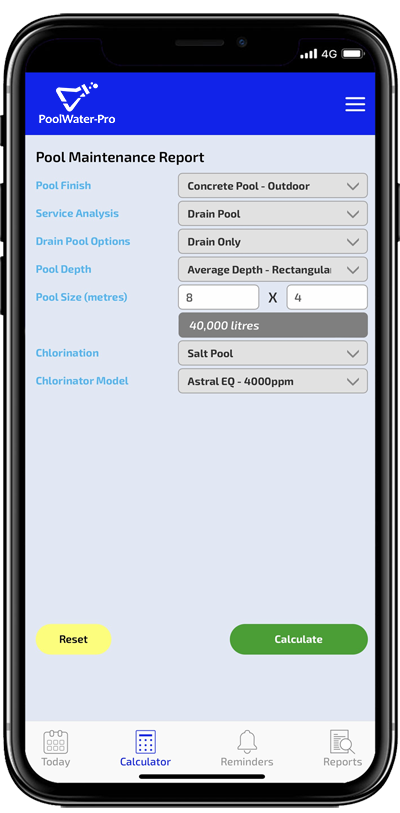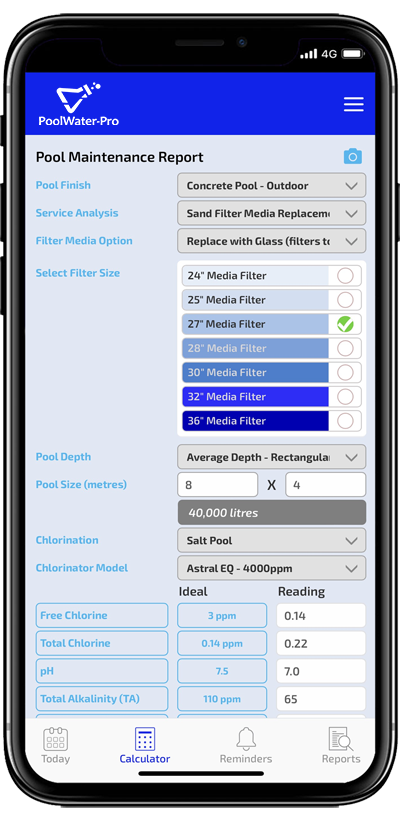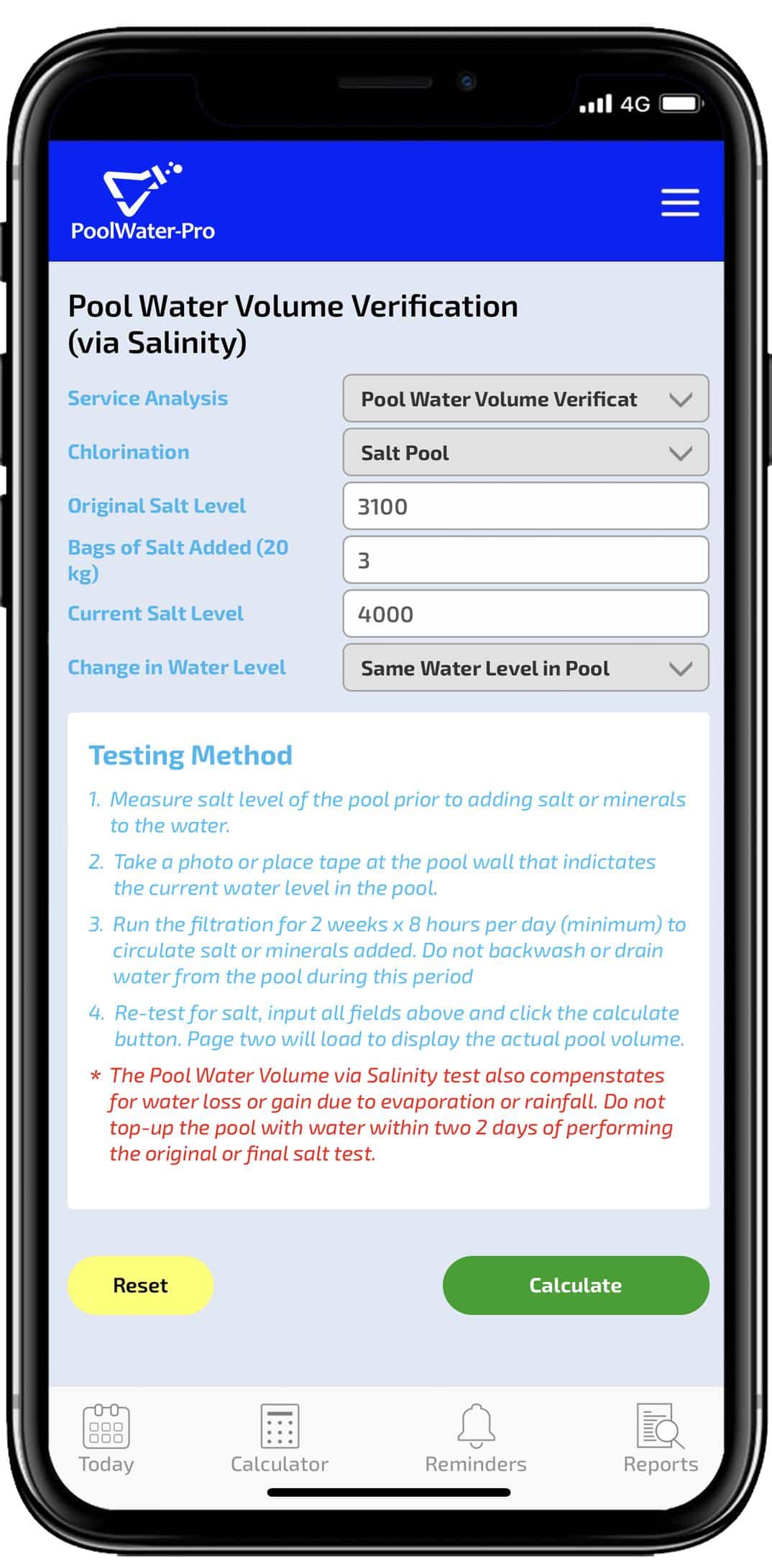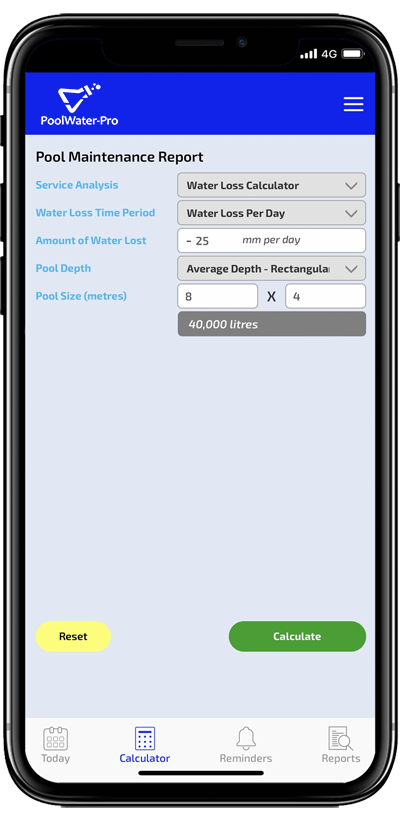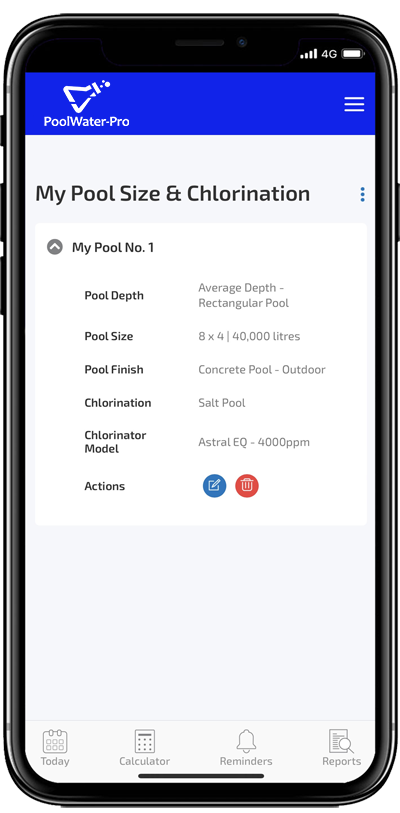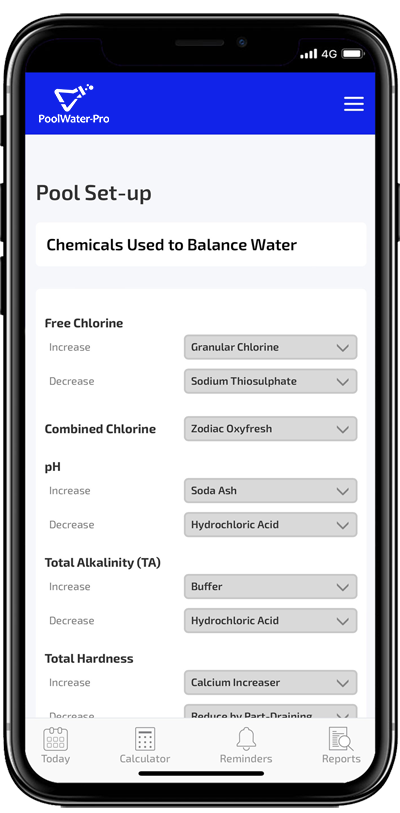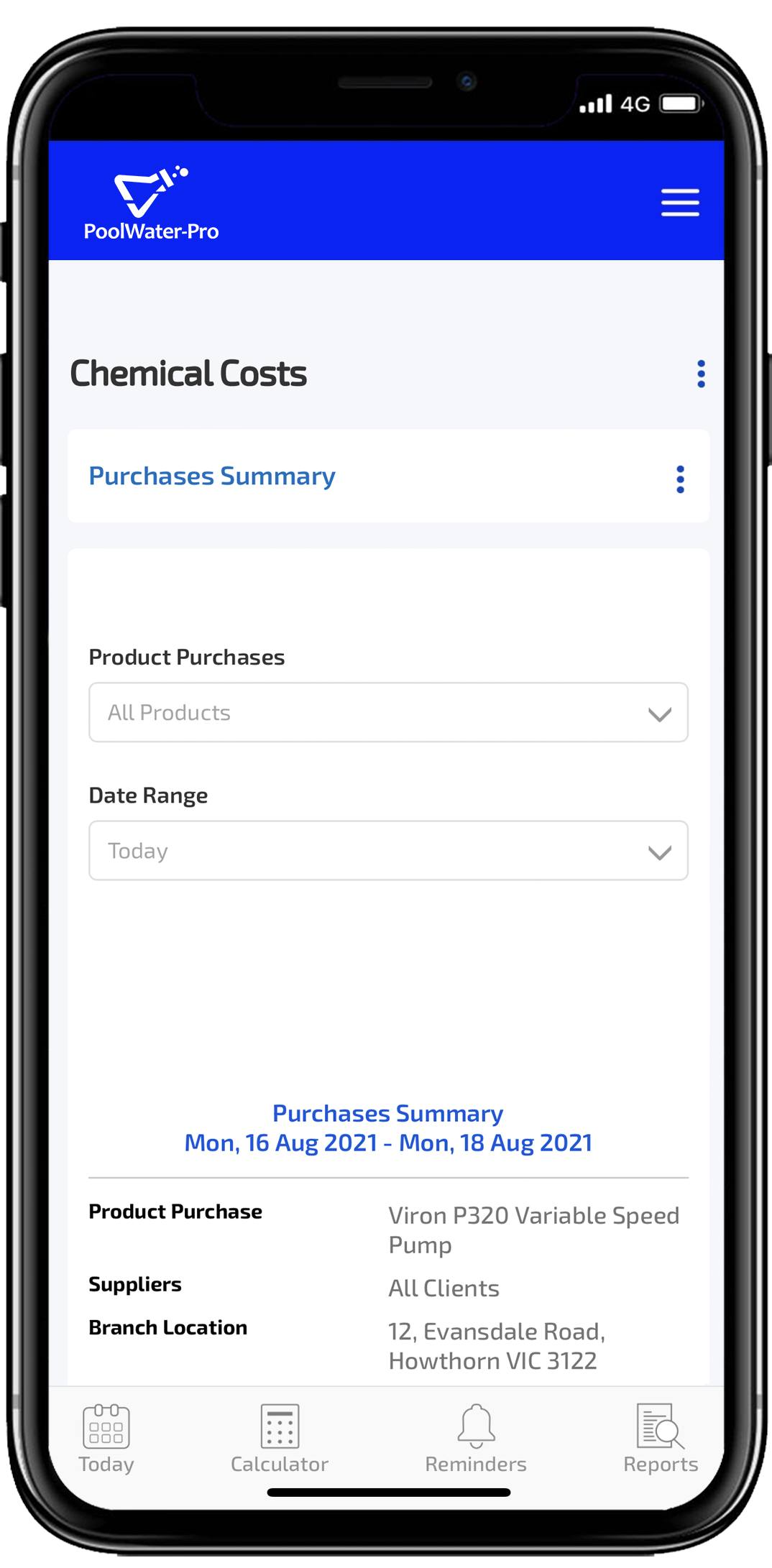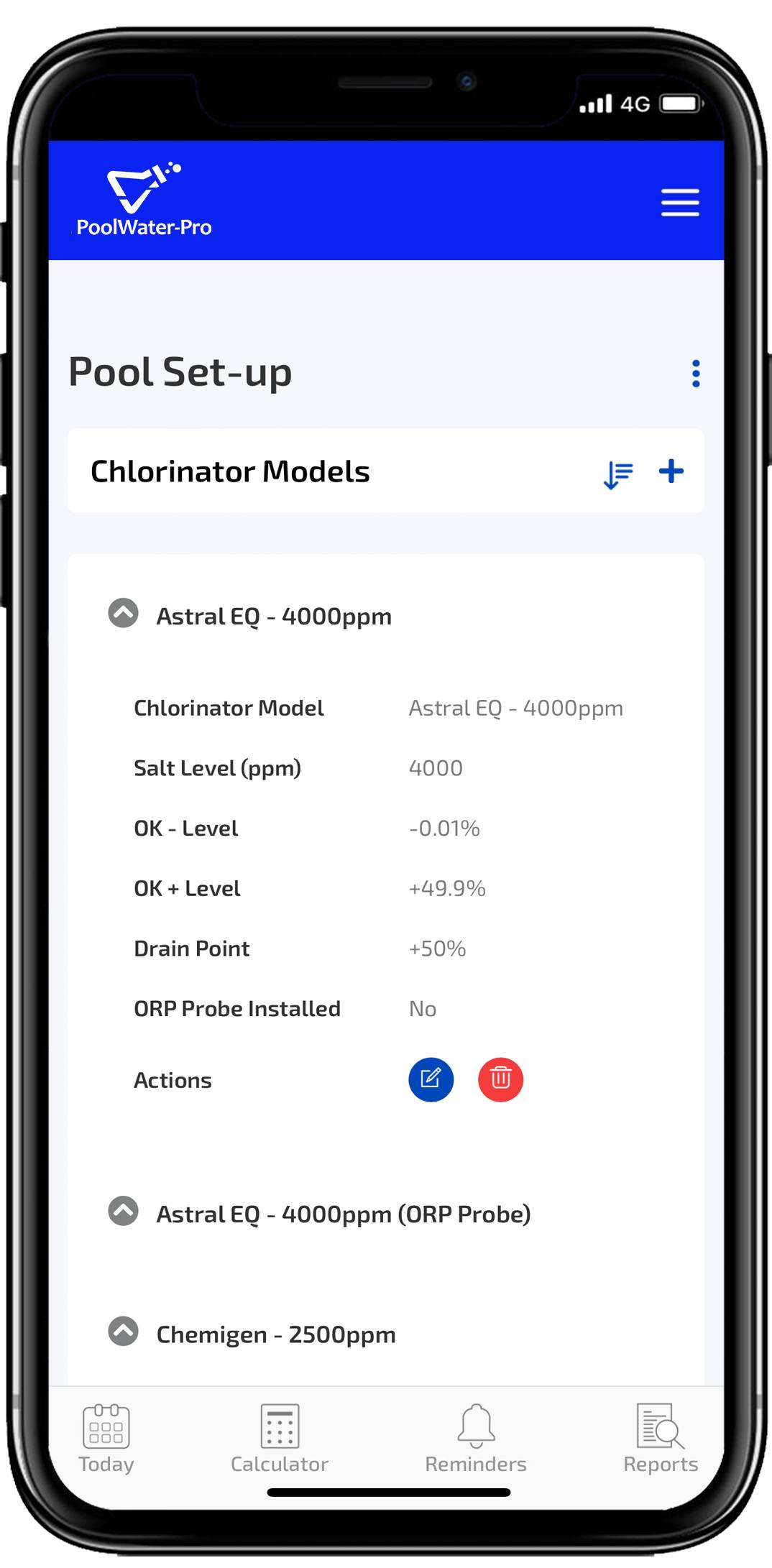How Often Should I Test My Pool Water?
Testing your pool water regularly helps to keep the right chemical balance in your pool. Have your pool chemicals balanced, run the filter for 8-10 hours per day during summer and 4-5 hours in winter. With balanced pool water and your filter running for the correct amount of time each day, your pool will always look clean and clear, plus be safe for swimming.
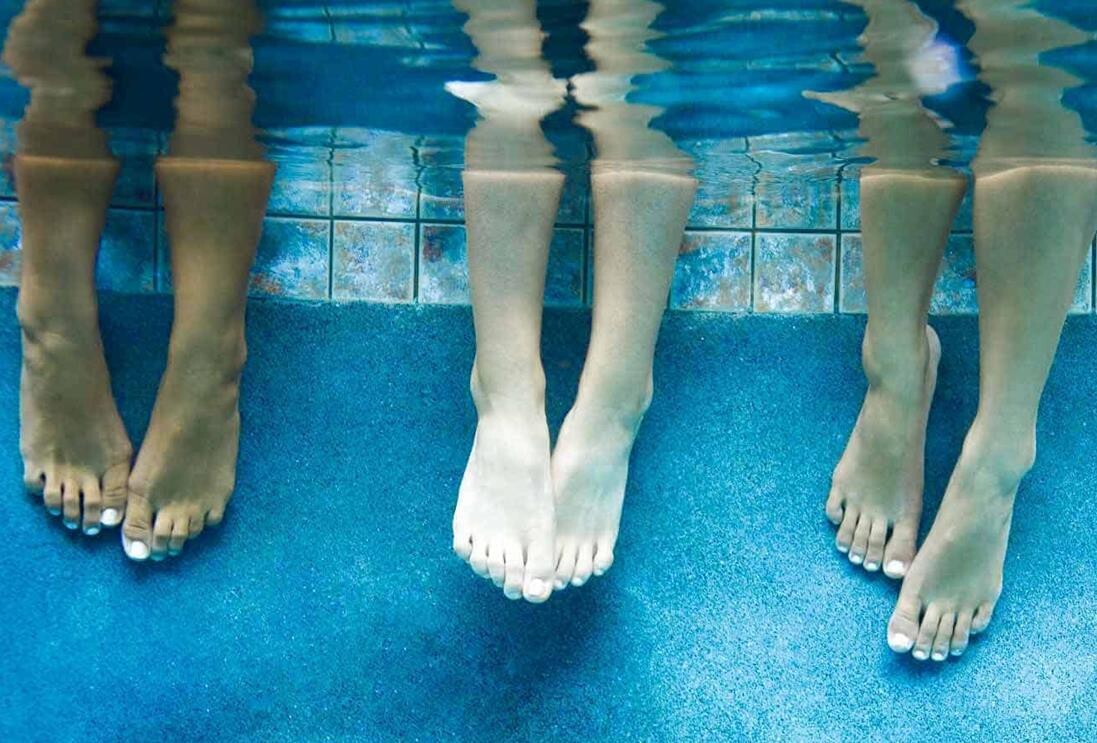
- Why Testing Pool Water is Necessary
- Factors Affecting Testing Frequency
- How Often to Test Pool Water
- Testing Methods
- Keeping Your Pool Water Balanced
Why Testing Pool Water is Necessary
Testing pool water is required for health, water clarity, algae prevention, equipment protection and cost of maintenance efficiencies.
Health
Keeping your pool water balanced is important for healthy pool water.
If the water isn’t properly balanced it can lead to skin and eye irritation, infections and cause other health problems.
Water Clarity
When your pool is not chemically balanced, it can become cloudy.
Keeping chemicals in check will keep your water looking crystal clear.
Equipment Longevity
Regularly test your pool water to maintain correct pH and alkalinity levels.
Taking care of your pool chemistry reduces the risk of corrosion or scaling, which extends the lifespan of your pumps, filters and heaters.
Algae Prevention
The secret to algae prevention is regularly testing chlorine levels.
The water being adequately sanitised will prevent algae from growing.
Cost of Maintenance Efficiencies
Frequent testing can help to minimise costly repairs and avoid overuse of chemicals, which will cost you less money over time.

Factors Affecting Testing Frequency
How often you need to test your pool water depends on pool usage, weather conditions, pool type, water source and chemical usage.
Pool Usage
The more you use your pool, the more often you need to test the water.
Swimming activity brings in dirt, sunscreen, cosmetics and sweat, all of which can affect the water’s chemistry.
Weather Conditions
Weather conditions will impact the water chemistry.
Heat will increase chlorine demand and evaporation, while rain will dilute your pool’s chemicals.
It’s important to test your pool water during hot weather or after heavy rains.
Pool Type
The frequency for testing needed will depend on whether you have an in-ground or above-ground pool and its size.
Larger pools usually have more stable chemistry, with smaller pools needing more frequent testing.
Water Source
If you use bore water or water with high mineral content, test your pool more often to manage issues such as calcium hardness.
Chemical Usage
If you’re frequently adding chemicals, testing more often is required to make sure your levels are balanced.

How Often to Test Pool Water
Maintaining a consistent pool testing routine will keep your pool looking crystal clear throughout the year.
By following the recommendations below, you’ll have a pro-active approach, ensuring your pool stays in top shape.
Weekly Testing
For most residential pools, testing once a week is usually sufficient.
Check chlorine levels, pH, alkalinity and if needed also test calcium hardness and stabiliser (CYA).
Following Heavy Use
Test your pool after heavy usage and adjust chemical levels accordingly.
After Extreme Weather
Test the water after heavy rains, storms, or extreme heat, because weather conditions significantly affect water chemistry.
Before Adding Chemicals
Always test the water before adding chemicals, so quantity amounts are based on current readings.
Monthly Testing
On a monthly basis, check for calcium hardness, stabiliser (CYA) and metals.
If you have a salt or mineral pool, check salinity levels each month with a digital reader and adjust as required.
These levels can affect water balance and the overall pool health over time.
Seasonal Testing
Before opening your pool for summer and again before closing it for winter, test the water for all parameters.
This helps to keep the pool in good condition and prevents issues when it’s not in use.
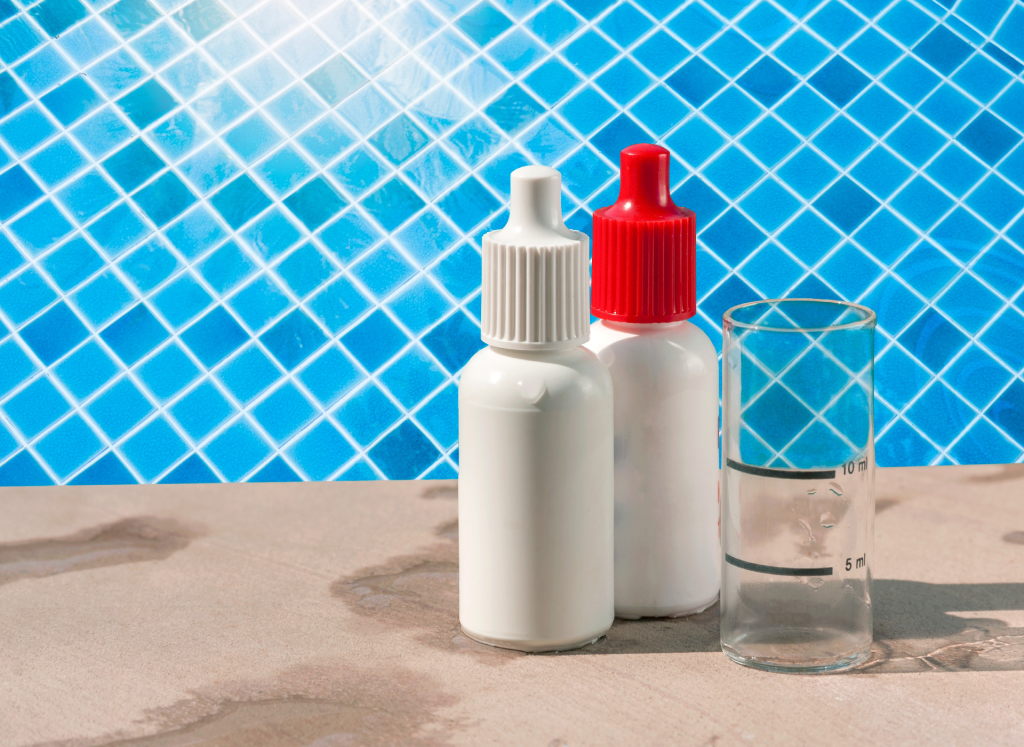
Testing Methods
There are several different methods for testing your pool water, each with their own advantages.
Test Strips
Test strips are straight forward to use, just dip them in the water and get instant results.
You can find test strips online, at pool supply shops or from a hardware store.
Test Kits
With test kits, water is added to reagents then a colour comparison chart is used to determine chemical readings.
Additional parameters such as metals and phosphates can be checked using these kits.
Photometer
A photometer is a more advanced device that measures the colour of light passing through your water sample to provide precise chemical readings.
Professional Water Testing
You can get professional water testing from most pool stores or you can contact a mobile pool service.
If taking a water sample to a pool store, collect about one cup of water in a clean container.
Have the water tested as soon as possible for the most reliable test results.
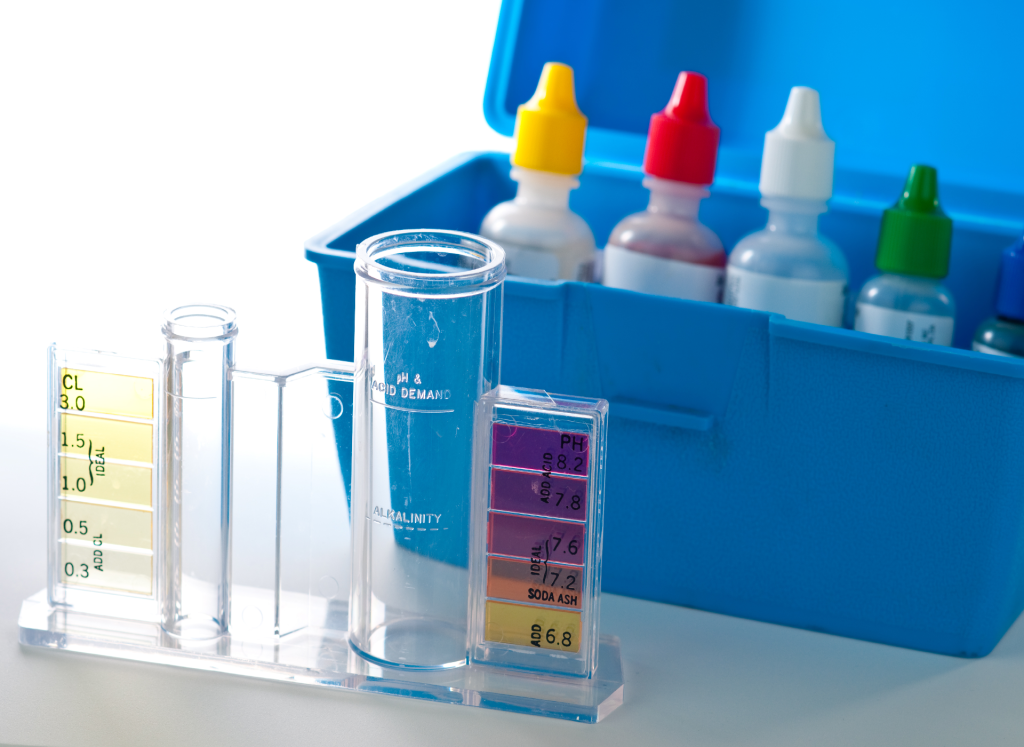
Keeping Your Pool Water Balanced
Regular testing is only one part of pool care, balancing the different chemicals to be within recommended ranges is another.
Chlorine Levels
Keep chlorine levels between 1.0 to 3.0 parts per million (ppm) to sanitise the water.
pH Levels
Maintain a pH level between 7.2 and 7.8 for optimal chlorine efficiency to avoid skin and eye irritation.
Alkalinity
Aim for total alkalinity between 80 and 120 ppm to help stabilise pH levels and prevent sudden changes.
Calcium Hardness
Calcium hardness should be between 80 and 500 ppm to prevent scaling and corrosion.
Stabiliser (CYA)
Keep the stabiliser levels between 20 and 40 ppm to protect chlorine being degraded by sunlight.
Adjusting Chemicals
Based on your test results, add chemicals as needed to bring levels back to where they should be.
Always follow the manufacturer’s instructions for adding chemicals.

Testing pool water is required for health, water clarity, algae prevention, equipment protection and cost of maintenance efficiencies.
Health
Keeping your pool water balanced is important for healthy pool water.
If the water isn’t properly balanced it can lead to skin and eye irritation, infections and cause other health problems.
Water Clarity
When your pool is not chemically balanced, it can become cloudy.
Keeping chemicals in check will keep your water looking crystal clear.
Equipment Longevity
Regularly test your pool water to maintain correct pH and alkalinity levels.
Taking care of your pool chemistry reduces the risk of corrosion or scaling, which extends the lifespan of your pumps, filters and heaters.
Algae Prevention
The secret to algae prevention is regularly testing chlorine levels.
The water being adequately sanitised will prevent algae from growing.
Cost of Maintenance Efficiencies
Frequent testing can help to minimise costly repairs and avoid overuse of chemicals, which will cost you less money over time.

How often you need to test your pool water depends on pool usage, weather conditions, pool type, water source and chemical usage.
Pool Usage
The more you use your pool, the more often you need to test the water.
Swimming activity brings in dirt, sunscreen, cosmetics and sweat, all of which can affect the water’s chemistry.
Weather Conditions
Weather conditions will impact the water chemistry.
Heat will increase chlorine demand and evaporation, while rain will dilute your pool’s chemicals.
It’s important to test your pool water during hot weather or after heavy rains.
Pool Type
The frequency for testing needed will depend on whether you have an in-ground or above-ground pool and its size.
Larger pools usually have more stable chemistry, with smaller pools needing more frequent testing.
Water Source
If you use bore water or water with high mineral content, test your pool more often to manage issues such as calcium hardness.
Chemical Usage
If you’re frequently adding chemicals, testing more often is required to make sure your levels are balanced.

Maintaining a consistent pool testing routine will keep your pool looking crystal clear throughout the year.
By following the recommendations below, you’ll have a pro-active approach, ensuring your pool stays in top shape.
Weekly Testing
For most residential pools, testing once a week is usually sufficient.
Check chlorine levels, pH, alkalinity and if needed also test calcium hardness and stabiliser (CYA).
Following Heavy Use
Test your pool after heavy usage and adjust chemical levels accordingly.
After Extreme Weather
Test the water after heavy rains, storms, or extreme heat, because weather conditions significantly affect water chemistry.
Before Adding Chemicals
Always test the water before adding chemicals, so quantity amounts are based on current readings.
Monthly Testing
On a monthly basis, check for calcium hardness, stabiliser (CYA) and metals.
If you have a salt or mineral pool, check salinity levels each month with a digital reader and adjust as required.
These levels can affect water balance and the overall pool health over time.
Seasonal Testing
Before opening your pool for summer and again before closing it for winter, test the water for all parameters.
This helps to keep the pool in good condition and prevents issues when it’s not in use.
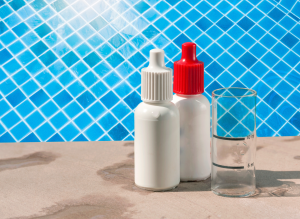
There are several different methods for testing your pool water, each with their own advantages.
Test Strips
Test strips are straight forward to use, just dip them in the water and get instant results.
You can find test strips online, at pool supply shops or from a hardware store.
Test Kits
With test kits, water is added to reagents then a colour comparison chart is used to determine chemical readings.
Additional parameters such as metals and phosphates can be checked using these kits.
Photometer
A photometer is a more advanced device that measures the colour of light passing through your water sample to provide precise chemical readings.
Professional Water Testing
You can get professional water testing from most pool stores or you can contact a mobile pool service.
If taking a water sample to a pool store, collect about one cup of water in a clean container.
Have the water tested as soon as possible for the most reliable test results.
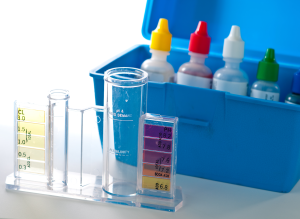
Regular testing is only one part of pool care, balancing the different chemicals to be within recommended ranges is another.
Chlorine Levels
Keep chlorine levels between 1.0 to 3.0 parts per million (ppm) to sanitise the water.
pH Levels
Maintain a pH level between 7.2 and 7.8 for optimal chlorine efficiency to avoid skin and eye irritation.
Alkalinity
Aim for total alkalinity between 80 and 120 ppm to help stabilise pH levels and prevent sudden changes.
Calcium Hardness
Calcium hardness should be between 80 and 500 ppm to prevent scaling and corrosion.
Stabiliser (CYA)
Keep the stabiliser levels between 20 and 40 ppm to protect chlorine being degraded by sunlight.
Adjusting Chemicals
Based on your test results, add chemicals as needed to bring levels back to where they should be.
Always follow the manufacturer’s instructions for adding chemicals.

Introducing Effective Solutions
Simplify your pool maintenance routine with POOLWATER-PRO. Our software turns test-strips into accurate digital readings, right from your phone. Get instant alerts to know if your pool is safe to swim, plus any chemicals needed.
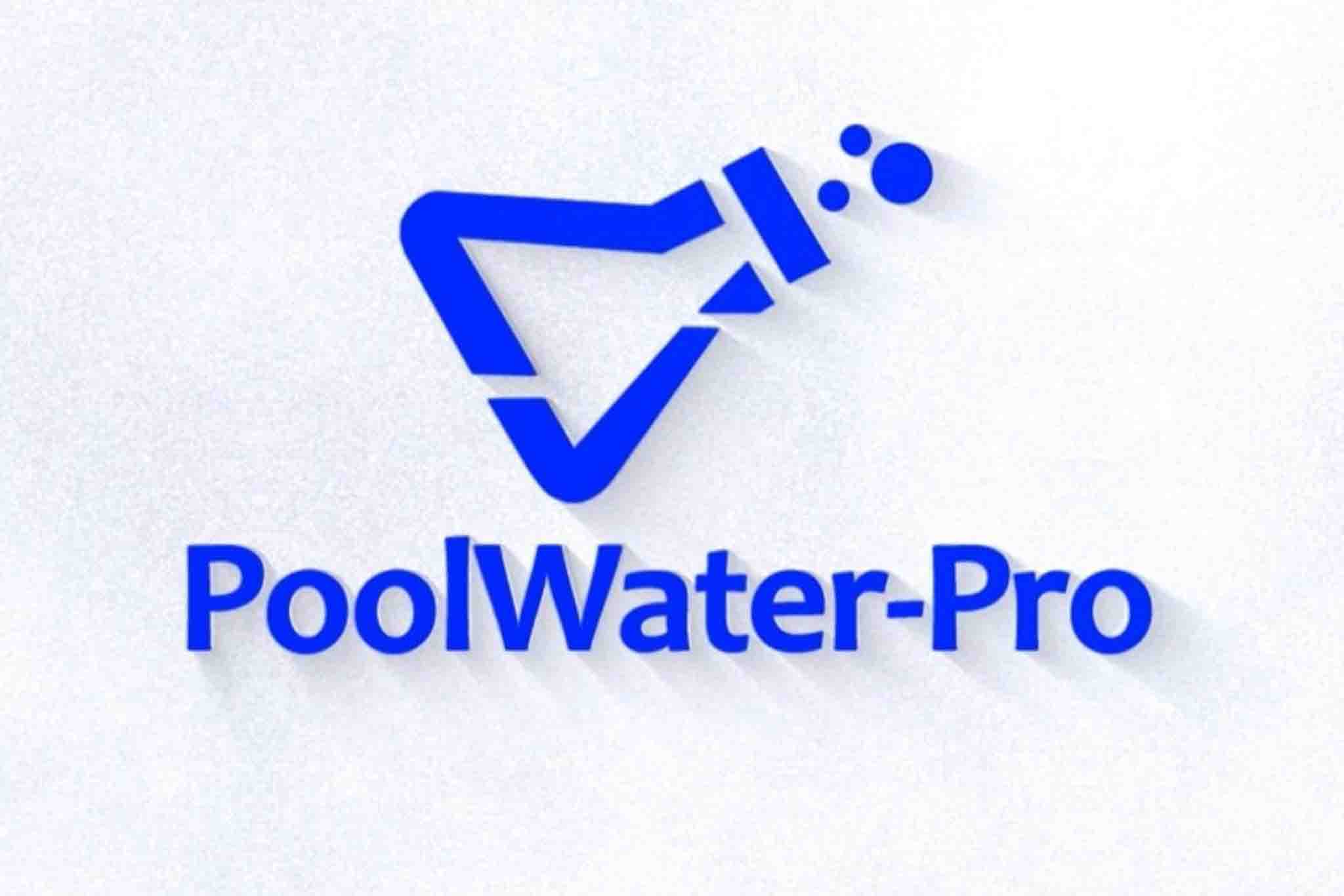
Introducing Effective Solutions
Simplify your pool maintenance routine with POOLWATER-PRO. Our software turns test-strips into accurate digital readings, right from your phone. Get instant alerts to know if your pool is safe to swim, plus any chemicals needed.
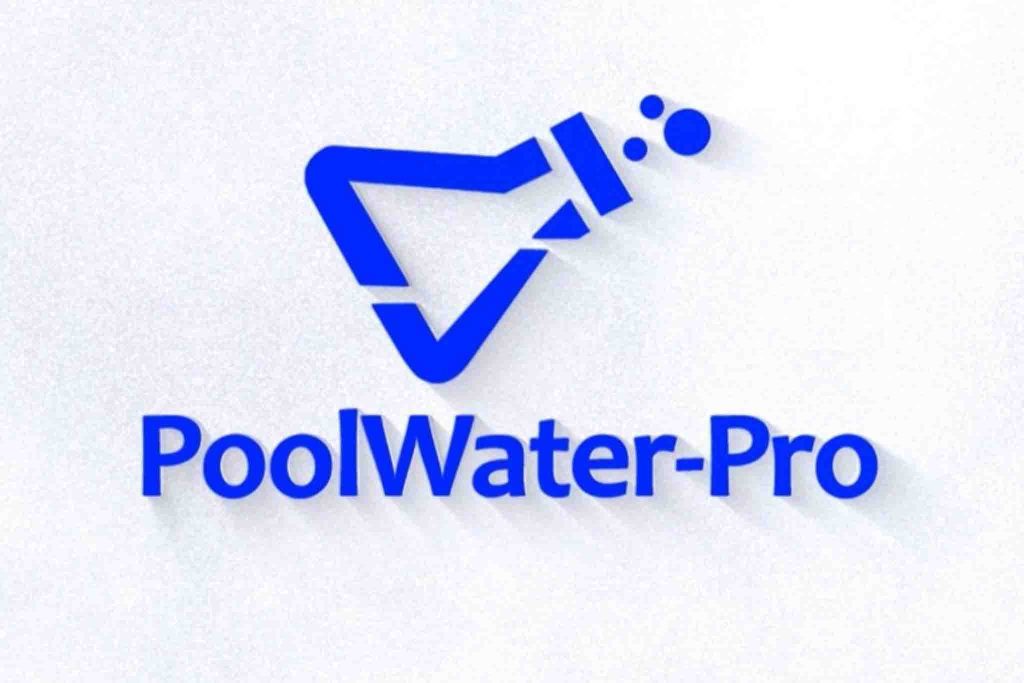
Your Path to Clarity
Watch this quick explainer video to see the platform’s features and how it can make pool care hassle-free.
Watch this quick explainer video to see the platform’s features and how it can make pool care hassle-free.




